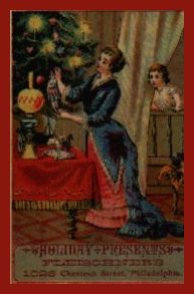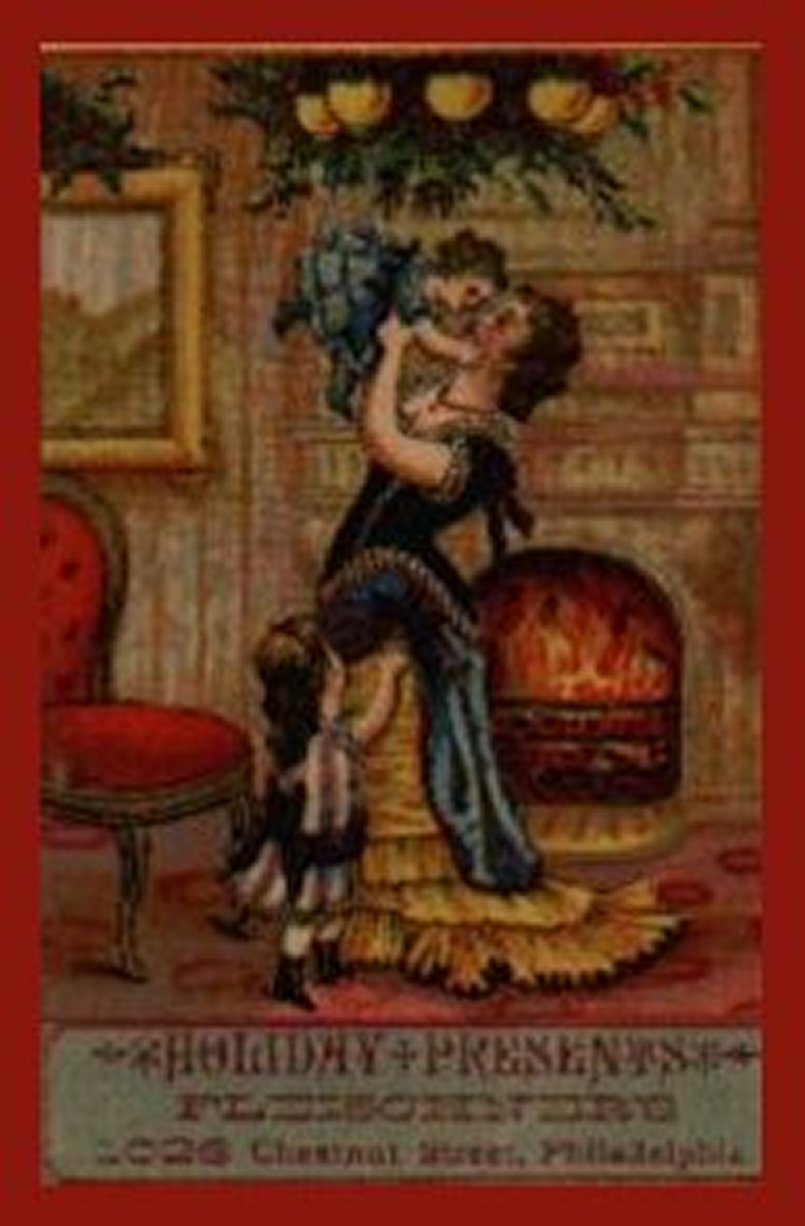"The suburban life of our great cities is a marked social feature of the day; the taste for the quiet domestic pursuits, which naturally spring up in the abundant leisure of the country, contest their place warmly with the fashion and gaiety of the town. Every year more families give up their city residences, and, save a month or two at some hotel, or with friends who are glad enough to return the compliment when summer comes, pass the year out of the sight of bricks and mortar. They certainly have fewer excuses, if they do not live "a sober, righteous, and godly life," than those who are drawn more or less into the vortex of "society," under which we include party-giving and party-going, shopping, calling, the opera, the concert - all that envious people sum up with the convenient title of "city dissipation. " "City people, in the mean time, shrug their shoulders, and wonder what people can possibly find to do with themselves, and look on their "country cousins" as the victims of routine, and narrow-mindedness, and general stupidity!" "We present these rival claims in what may be supposed to be the chief enjoyment of each separate life. Christmas, the general holiday, has its charms for each. In town there is much consultation as to toilet, for though the children absorb the morning, and it is proper to be seen at church, it is not less certain that the intimate male gentlemen friends of the family will make their appearance by the time a demi-toilet can be dispatched, a little rehearsal of the general reception that marks the New Year. There are symptoms of it in the well spread lunch table of the luxurious drawing-room, in the impromptu grouping of ladies of the house with the first tinkle of the door bell, and its enjoyment culminates in the entrance of "the coming man," who "takes the liberty of bringing his friend Marks," already well known in society an "superb in the German." "Their country cousins, meantime, have already dined ! -unfashionable creatures - and enjoyed with keen appetites the ample bountiful Christmas dinner the barn yard, and the garden's latest gifts of crisp celery, winter vegetables and fruit, have contributed to. The air is keen and clear, the sky unclouded sapphire, the roads in their prime of sleighing from yesterday's travel over the last cheerful snow storm. They, too, have "gentlemen friends" who are only too happy to pay their devoirs in the clear open air, and in much merriment the sleighing party is made up, to dash along with chiming bells, and song and laughter. An upset now and then is counted in with the amusements of the day, so that no one is hurt, and who ever is? - by a fall into a yielding snowbank!" "We leave our lady friends to choose for themselves in which scene lies the best opportunity for amusement and - a proposal!"
and invented new ones such as sending Christmas cards. The Victorians also promoted church-going, gift-giving, and charity to the poor as essential parts of the holiday. They transformed the folk figures of Father Christmas and Santa Claus into symbols of holiday generosity,and they greatly popularized Germany's traditional Christmas tree or Christbaum Most of all, the Victorians made Christmas a family celebration, with its primary focus on the Christ Child and children. A Victorian Christmas entailed the exchange of gifts between parents and children; attendance together at Church services; a multi-course family dinner; and visits with friends, relatives, and other families. Behind the double doors of the Victorian parlor stood the Christmas tree, an old German custom the Victorians enlarged upon both in style and decoration. This tradition had come to England by way of Queen Victoria's great-great-grandfather When she was Queen, Victoria had a Christmas tree at Windsor Castle. In 1848, an etching of Victoria, Albert, and their children gathered acround their decorated tree was published in The Illustrated London News As a result, Christmas trees became the popular fashion in England and the central feature of the Victorian family Christmas. German settlers had brought the custom to America, but when the same illustration of Victoria and her family appeared in Goody's Lady's Book in 1850, Christmas trees became even more popular in American than in England. What made the Victorian Christmas tree so special was its elaborate decoration. Decorations included gingerbread men, marzipan candies, hard candies, cookies, fruit, cotton-batting Santas, paper fans, tin soldiers, whistles, wind-up toys, and trinkets of all kinds. Paper cornucopias filled with nuts, candies, and other treats were the Victorian favorite. Children often helped make tree decorations. They would string garlands of popcorn or cranberries, or make chains of paper flowers. Some families set up Nativity or outdoor scenes under the tree, using moss for grass and mirrors for ponds. Later in the century imported ornaments from Germany began to replace the homemade ones. First came glass icicles and hand-blown glass globes called kugels. Dresdens, which were embossed silver and gold cardboard ornaments, took exotic shapes--moons, butterflies, fish, birds, ships, and even automobiles. A Victorian family's most prized ornament was the Nuremberg angel atop the tree. It had wings of spun glass, a crinkled gold skirt, and a wax or bisque face. Angles or cherubs represented the Victorian ideal of childlike or womanly innocence. The true Christmas story as recorded in the Bible was their most important reading of the season. And it came to pass in those day there went out a decree from Ceasar Augustus, that all the world should be taxed. And all went to be taxed, every one into his own city. And Joseph also went up from Galilee, out of the city of Nazareth, into Judea, unto the city of David, which is called Bethlehem: (because he was of the house and lineage of David) And so it was, that, while they were there, the days were accomplished that she should be delivered. And she brought forth her first-born son, and wrapped him in swaddling clothes, and laid him in a manager; because there was no room for them at the inn. And there were in the same country shepherds abiding in the field, keeping watch over their flock by night And, lo, the angel of the Lord came upon them, and the glory of the Lord shone round about them; and they were sore afraid. And the angel said unto them, Fear not: for, behold, I bring you good tidings of great joy, which shall be to all people. For unto you is born this day in the city of David a Savior, which is Christ the Lord.
to bask in the glow of the Yule log. Outside, the wind blows cold, and the naked limbs of the trees scratch against the window panes. The children join hands and grow silent while Father prepares to tell, perhaps, one of the following stories. |



